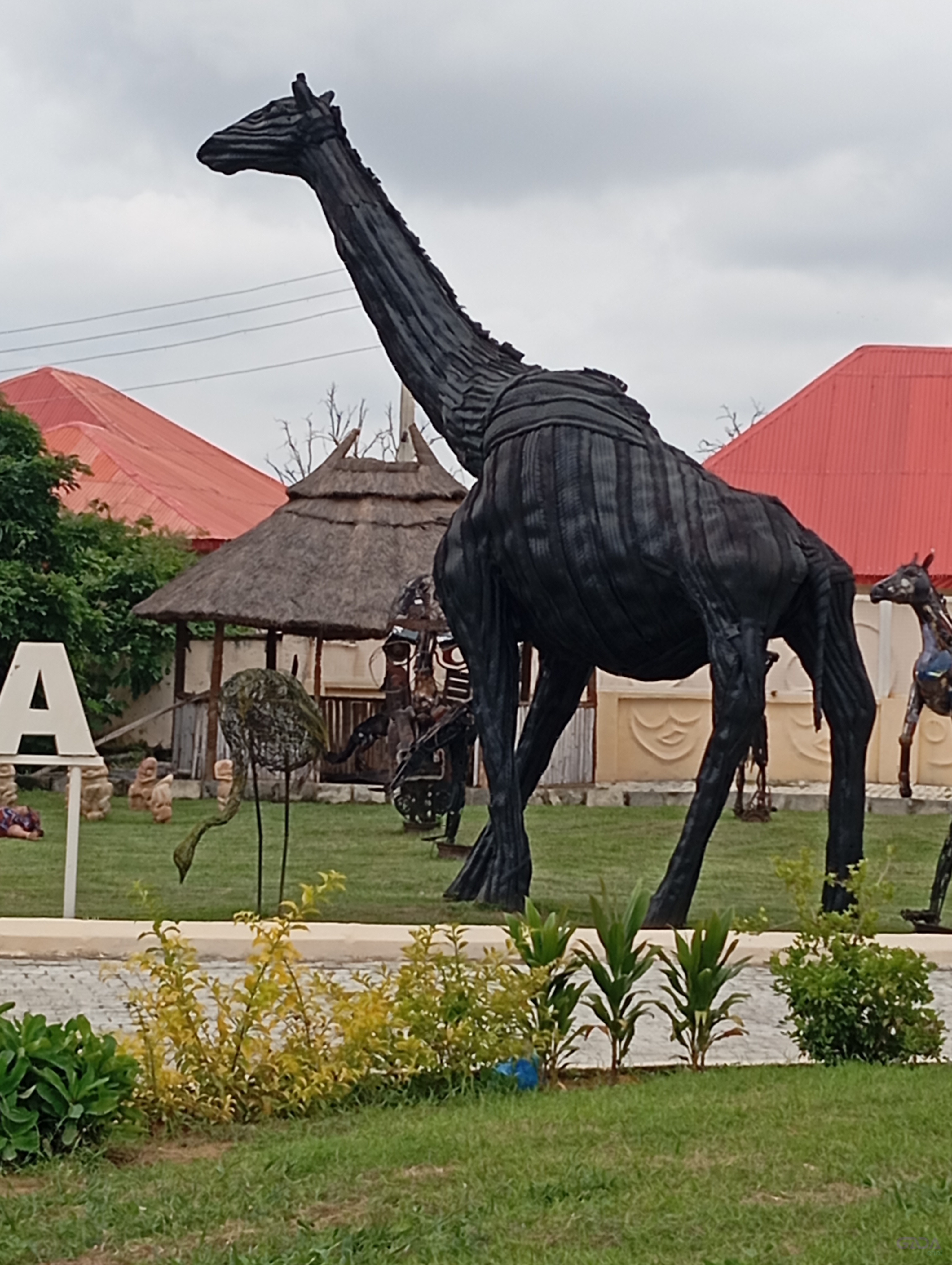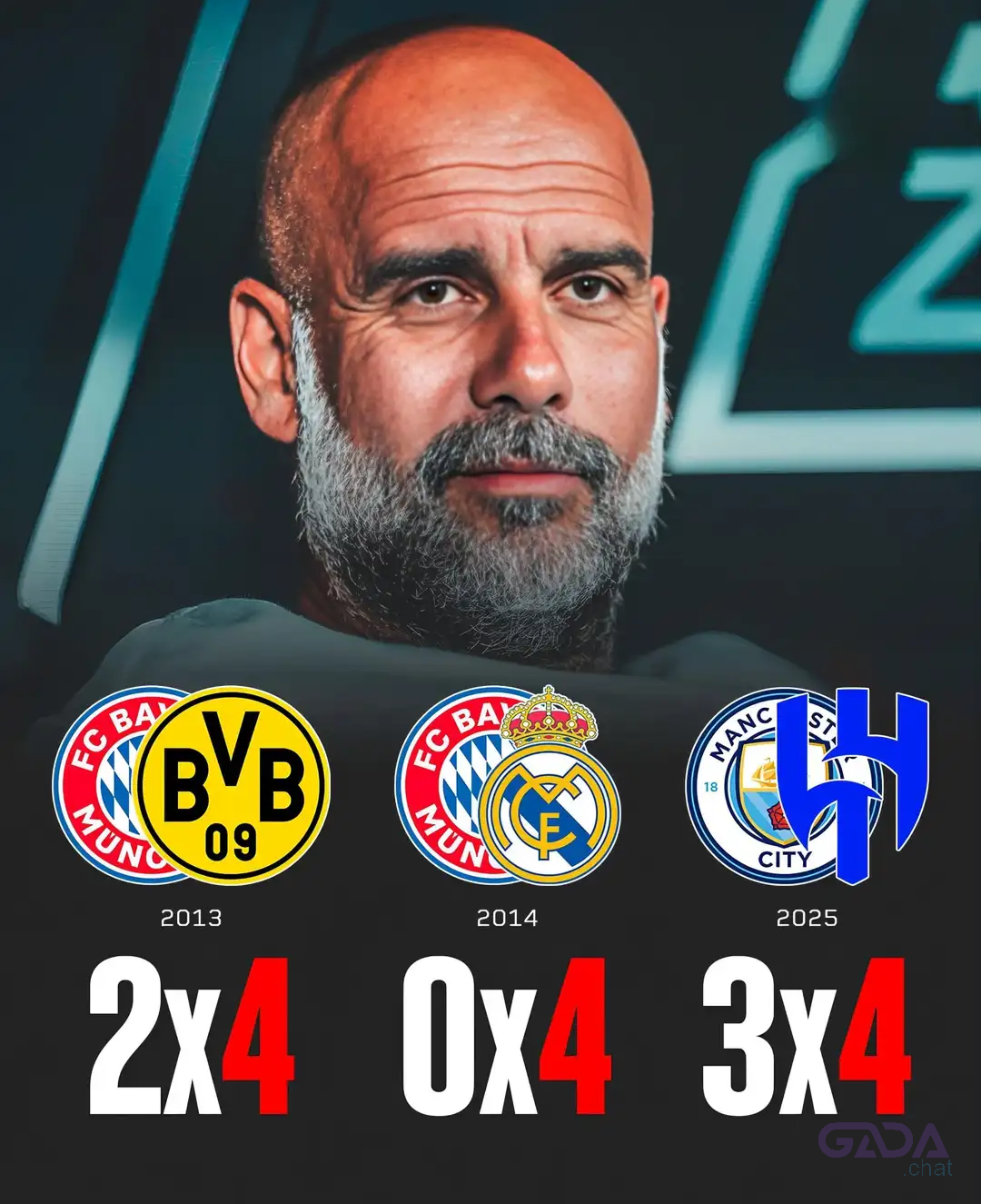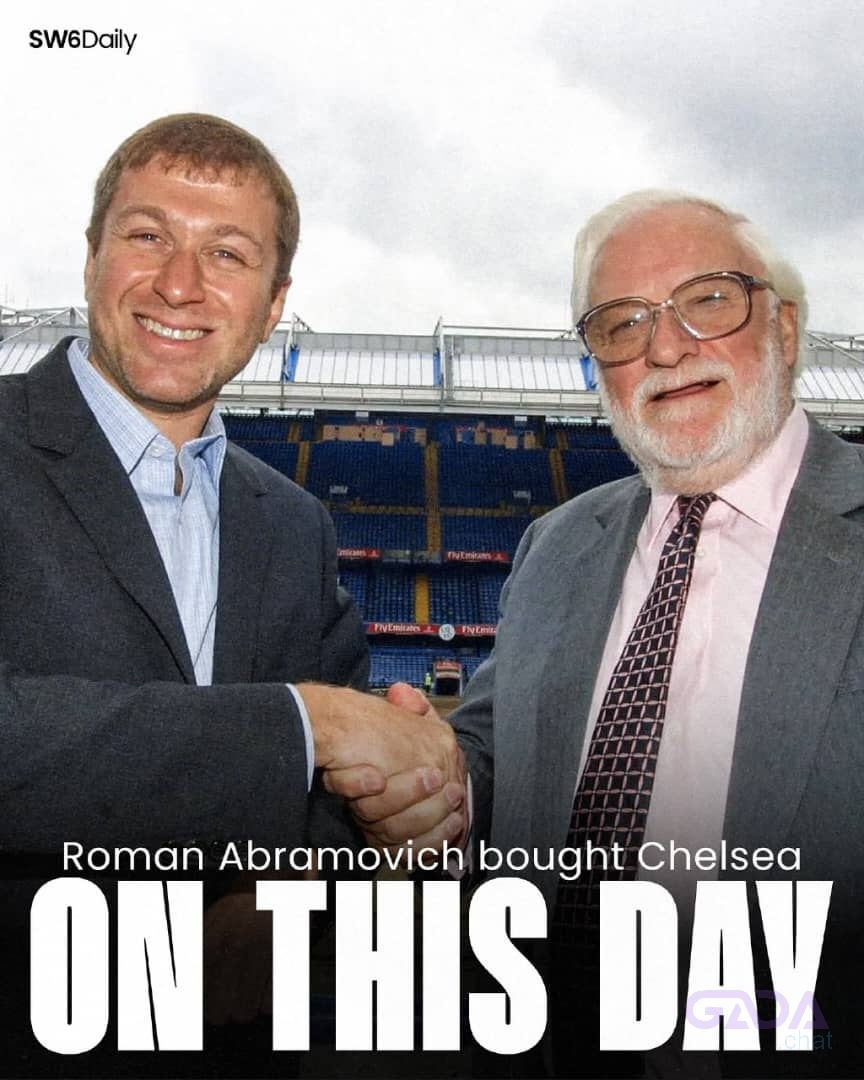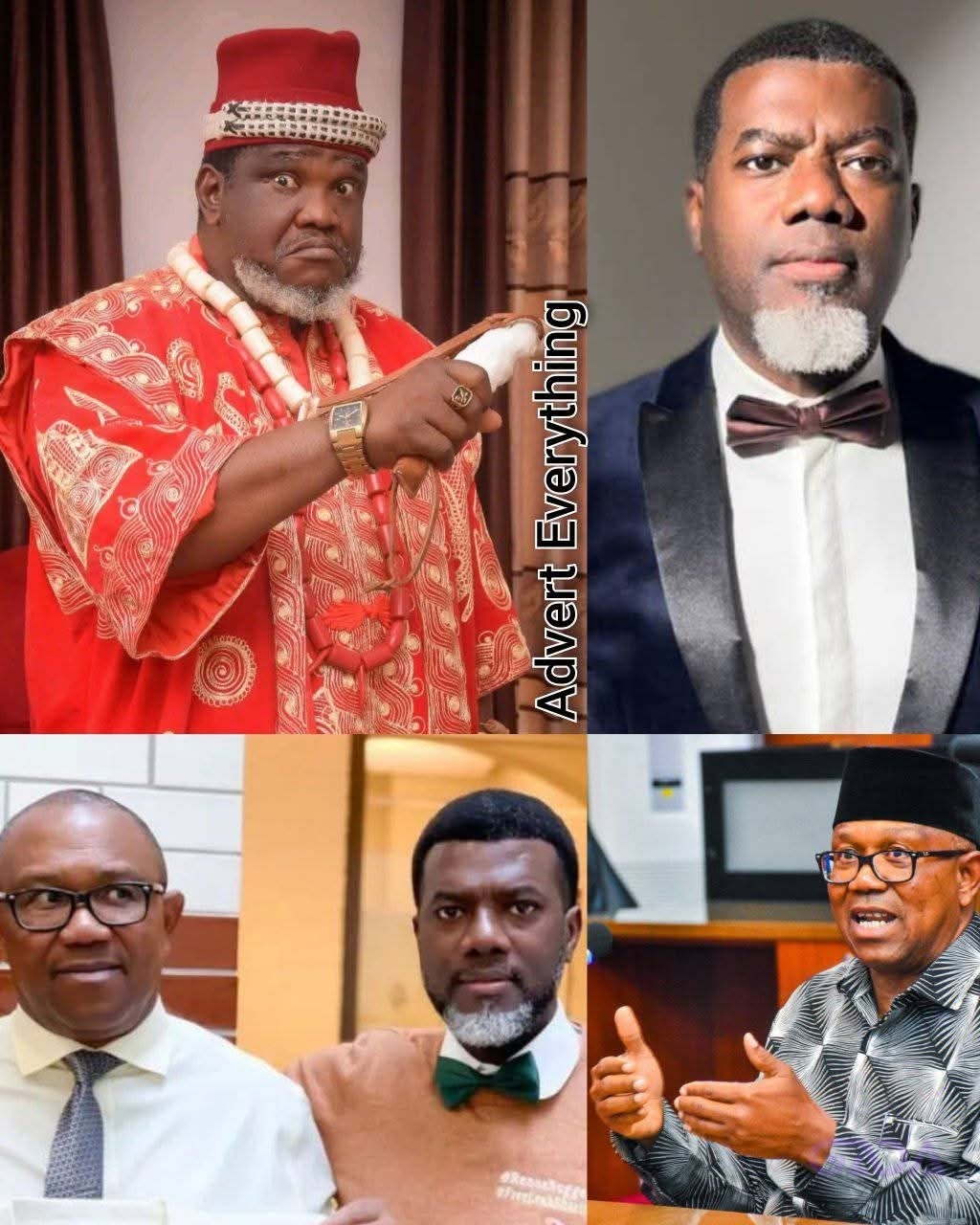Copied.
When Okon applied as a gateman at my husband's work place in 2013, I noticed him almost immediately.
There was just something about him.
Maybe it was the way he greeted, cheerful, respectful, eyes bright like he had no worries in the world. Maybe it was how quick he was to learn, even though technically, he was just “the man at the gate.”
My husband was the branch MD then. We both worked in the same company. He was the MD, and I handled internal affairs. That’s how I first noticed Okon, the gatekeeper who never acted like one.
However, my husband is the type that believes everybody deserves to be treated with dignity, from the cleaner to the board chairman. And Okon? He mirrored that same energy, like he was carved from the same wood.
But what really struck me about Okon was how he carried himself.
While some gatemen used style to scan your dressing and weigh your pocket before hailing you with:
“My Oga… I dey loyal. Anything for the boys?”
Okon never did that. Never.
He did his work like a professional, too professional sef for the role. He wasn’t the type to disappear when the sun was scorching and customers were no longer trooping in. Instead, he would curl into his plastic chair, pull out one heavy textbook, and read like he was preparing for a bigger mission.
Every single time.
At some point, I started paying closer attention. Something told me this young man was not just hustling, he had vision. He had fire in his bones.
I mentioned it to my husband one night while we were locking up and heading home. And he smiled and said, “I’ve noticed too.”
So we both agreed, it was time to talk to him.
That evening, after everyone had left, we called him in.
He walked in, slightly nervous, still polite.
We smiled and asked, “Okon, we’ve been watching you for a while. You’re not just different—you’re intentional. What are your life goals?”
He smiled, a little shy, and said:
“My goal is to be a chartered accountant, I’ve actually completed my ND 2, I'm just trying to raise money and go back to school.”
I blinked. ND1?
“Where are your parents?” my husband asked gently.
He swallowed. “They died when I was five. I was raised by my grandma, but she passed away three years ago.”
My chest tightened.
“So you’ve been on your own since then?”
“Yes ma,” he nodded.
I swear, I had to swallow the lump in my throat.
He had every reason to go astray, to become bitter, to be entitled, but he chose a different path. A path of hard work, dignity, and quiet resilience.
I looked at my husband. That was it.
We had to help him.
We encouraged him to get the HND form. He did, and registered for part-time with some of the savings he had already gathered. We paid the rest of his school fees.
When he knelt down to thank us, I almost burst into tears. But we told him, “Stand up, biko. We’re just doing what God laid in our heart.”
We got someone to assist him on shift duty, so he could combine work and school properly.
In one year and six months, Okon graduated. No social media noise, just focus.
When it was time for his convocation, my husband and I went and stood in as a family for him.
We came with different cooked delicacies.
When he saw us, Nah to cry remind for Okon. He said he has never experienced this kindness in his life before, or even being celebrated.
The convocation went well, and we took a cute photoshoot which was enlarged.
Okon however didn’t even wait for NYSC. He got his statement of result and continued working.
Then my husband told him, “Apply as a staff. You can’t be at the gate again.”
He applied.
They gave him the job.
That same gate where he used to stand, he now walked past wearing a shirt and tie. His former colleagues would hail him:
“Okon! You don be our boss oh! Remember your boys!”
He would smile and still “remember” them from time to time.
Okon worked with integrity, humility, and excellence. Two years later, he got promoted.
We were already a family. He would come to the house, gist with us, celebrate small wins, bring cake for the children.
He even got married, before my husband got transferred to Abuja.
Ah, when we were leaving, Okon wept like a baby.
He hugged us over and over, came visiting again before we finally left.
He still calls us often.
Just last week, he told me he had been promoted to Executive Director.
I froze.
I didn’t know when tears gathered in my eyes.
From a gateman to Executive Director?
Only God can write such beautiful stories.
And sometimes, he uses people like you and I to hold the pen.
Moral of the story?
Don’t look down on anybody. That “ordinary” gateman you’re ignoring might just be a giant in the making.
Life is truly beautiful… when your heart is good.
Your current situation is not your conclusion.
You may start at the gate, but if you carry vision, discipline, and integrity, the gate won’t be your final address.
Finally, when you’re faithful in little, life will trust you with more.
Okon wasn’t waiting for a big role to show excellence. He gave his best as a gateman, and life respond and became executive director.
If this story inspired you, kindly share
When Okon applied as a gateman at my husband's work place in 2013, I noticed him almost immediately.
There was just something about him.
Maybe it was the way he greeted, cheerful, respectful, eyes bright like he had no worries in the world. Maybe it was how quick he was to learn, even though technically, he was just “the man at the gate.”
My husband was the branch MD then. We both worked in the same company. He was the MD, and I handled internal affairs. That’s how I first noticed Okon, the gatekeeper who never acted like one.
However, my husband is the type that believes everybody deserves to be treated with dignity, from the cleaner to the board chairman. And Okon? He mirrored that same energy, like he was carved from the same wood.
But what really struck me about Okon was how he carried himself.
While some gatemen used style to scan your dressing and weigh your pocket before hailing you with:
“My Oga… I dey loyal. Anything for the boys?”
Okon never did that. Never.
He did his work like a professional, too professional sef for the role. He wasn’t the type to disappear when the sun was scorching and customers were no longer trooping in. Instead, he would curl into his plastic chair, pull out one heavy textbook, and read like he was preparing for a bigger mission.
Every single time.
At some point, I started paying closer attention. Something told me this young man was not just hustling, he had vision. He had fire in his bones.
I mentioned it to my husband one night while we were locking up and heading home. And he smiled and said, “I’ve noticed too.”
So we both agreed, it was time to talk to him.
That evening, after everyone had left, we called him in.
He walked in, slightly nervous, still polite.
We smiled and asked, “Okon, we’ve been watching you for a while. You’re not just different—you’re intentional. What are your life goals?”
He smiled, a little shy, and said:
“My goal is to be a chartered accountant, I’ve actually completed my ND 2, I'm just trying to raise money and go back to school.”
I blinked. ND1?
“Where are your parents?” my husband asked gently.
He swallowed. “They died when I was five. I was raised by my grandma, but she passed away three years ago.”
My chest tightened.
“So you’ve been on your own since then?”
“Yes ma,” he nodded.
I swear, I had to swallow the lump in my throat.
He had every reason to go astray, to become bitter, to be entitled, but he chose a different path. A path of hard work, dignity, and quiet resilience.
I looked at my husband. That was it.
We had to help him.
We encouraged him to get the HND form. He did, and registered for part-time with some of the savings he had already gathered. We paid the rest of his school fees.
When he knelt down to thank us, I almost burst into tears. But we told him, “Stand up, biko. We’re just doing what God laid in our heart.”
We got someone to assist him on shift duty, so he could combine work and school properly.
In one year and six months, Okon graduated. No social media noise, just focus.
When it was time for his convocation, my husband and I went and stood in as a family for him.
We came with different cooked delicacies.
When he saw us, Nah to cry remind for Okon. He said he has never experienced this kindness in his life before, or even being celebrated.
The convocation went well, and we took a cute photoshoot which was enlarged.
Okon however didn’t even wait for NYSC. He got his statement of result and continued working.
Then my husband told him, “Apply as a staff. You can’t be at the gate again.”
He applied.
They gave him the job.
That same gate where he used to stand, he now walked past wearing a shirt and tie. His former colleagues would hail him:
“Okon! You don be our boss oh! Remember your boys!”
He would smile and still “remember” them from time to time.
Okon worked with integrity, humility, and excellence. Two years later, he got promoted.
We were already a family. He would come to the house, gist with us, celebrate small wins, bring cake for the children.
He even got married, before my husband got transferred to Abuja.
Ah, when we were leaving, Okon wept like a baby.
He hugged us over and over, came visiting again before we finally left.
He still calls us often.
Just last week, he told me he had been promoted to Executive Director.
I froze.
I didn’t know when tears gathered in my eyes.
From a gateman to Executive Director?
Only God can write such beautiful stories.
And sometimes, he uses people like you and I to hold the pen.
Moral of the story?
Don’t look down on anybody. That “ordinary” gateman you’re ignoring might just be a giant in the making.
Life is truly beautiful… when your heart is good.
Your current situation is not your conclusion.
You may start at the gate, but if you carry vision, discipline, and integrity, the gate won’t be your final address.
Finally, when you’re faithful in little, life will trust you with more.
Okon wasn’t waiting for a big role to show excellence. He gave his best as a gateman, and life respond and became executive director.
If this story inspired you, kindly share
Copied.
When Okon applied as a gateman at my husband's work place in 2013, I noticed him almost immediately.
There was just something about him.
Maybe it was the way he greeted, cheerful, respectful, eyes bright like he had no worries in the world. Maybe it was how quick he was to learn, even though technically, he was just “the man at the gate.”
My husband was the branch MD then. We both worked in the same company. He was the MD, and I handled internal affairs. That’s how I first noticed Okon, the gatekeeper who never acted like one.
However, my husband is the type that believes everybody deserves to be treated with dignity, from the cleaner to the board chairman. And Okon? He mirrored that same energy, like he was carved from the same wood.
But what really struck me about Okon was how he carried himself.
While some gatemen used style to scan your dressing and weigh your pocket before hailing you with:
“My Oga… I dey loyal. Anything for the boys?”
Okon never did that. Never.
He did his work like a professional, too professional sef for the role. He wasn’t the type to disappear when the sun was scorching and customers were no longer trooping in. Instead, he would curl into his plastic chair, pull out one heavy textbook, and read like he was preparing for a bigger mission.
Every single time.
At some point, I started paying closer attention. Something told me this young man was not just hustling, he had vision. He had fire in his bones.
I mentioned it to my husband one night while we were locking up and heading home. And he smiled and said, “I’ve noticed too.”
So we both agreed, it was time to talk to him.
That evening, after everyone had left, we called him in.
He walked in, slightly nervous, still polite.
We smiled and asked, “Okon, we’ve been watching you for a while. You’re not just different—you’re intentional. What are your life goals?”
He smiled, a little shy, and said:
“My goal is to be a chartered accountant, I’ve actually completed my ND 2, I'm just trying to raise money and go back to school.”
I blinked. ND1?
“Where are your parents?” my husband asked gently.
He swallowed. “They died when I was five. I was raised by my grandma, but she passed away three years ago.”
My chest tightened.
“So you’ve been on your own since then?”
“Yes ma,” he nodded.
I swear, I had to swallow the lump in my throat.
He had every reason to go astray, to become bitter, to be entitled, but he chose a different path. A path of hard work, dignity, and quiet resilience.
I looked at my husband. That was it.
We had to help him.
We encouraged him to get the HND form. He did, and registered for part-time with some of the savings he had already gathered. We paid the rest of his school fees.
When he knelt down to thank us, I almost burst into tears. But we told him, “Stand up, biko. We’re just doing what God laid in our heart.”
We got someone to assist him on shift duty, so he could combine work and school properly.
In one year and six months, Okon graduated. No social media noise, just focus.
When it was time for his convocation, my husband and I went and stood in as a family for him.
We came with different cooked delicacies.
When he saw us, Nah to cry remind for Okon. He said he has never experienced this kindness in his life before, or even being celebrated.
The convocation went well, and we took a cute photoshoot which was enlarged.
Okon however didn’t even wait for NYSC. He got his statement of result and continued working.
Then my husband told him, “Apply as a staff. You can’t be at the gate again.”
He applied.
They gave him the job.
That same gate where he used to stand, he now walked past wearing a shirt and tie. His former colleagues would hail him:
“Okon! You don be our boss oh! Remember your boys!”
He would smile and still “remember” them from time to time.
Okon worked with integrity, humility, and excellence. Two years later, he got promoted.
We were already a family. He would come to the house, gist with us, celebrate small wins, bring cake for the children.
He even got married, before my husband got transferred to Abuja.
Ah, when we were leaving, Okon wept like a baby.
He hugged us over and over, came visiting again before we finally left.
He still calls us often.
Just last week, he told me he had been promoted to Executive Director.
I froze.
I didn’t know when tears gathered in my eyes.
From a gateman to Executive Director?
Only God can write such beautiful stories.
And sometimes, he uses people like you and I to hold the pen.
Moral of the story?
Don’t look down on anybody. That “ordinary” gateman you’re ignoring might just be a giant in the making.
Life is truly beautiful… when your heart is good.
Your current situation is not your conclusion.
You may start at the gate, but if you carry vision, discipline, and integrity, the gate won’t be your final address.
Finally, when you’re faithful in little, life will trust you with more.
Okon wasn’t waiting for a big role to show excellence. He gave his best as a gateman, and life respond and became executive director.
If this story inspired you, kindly share











